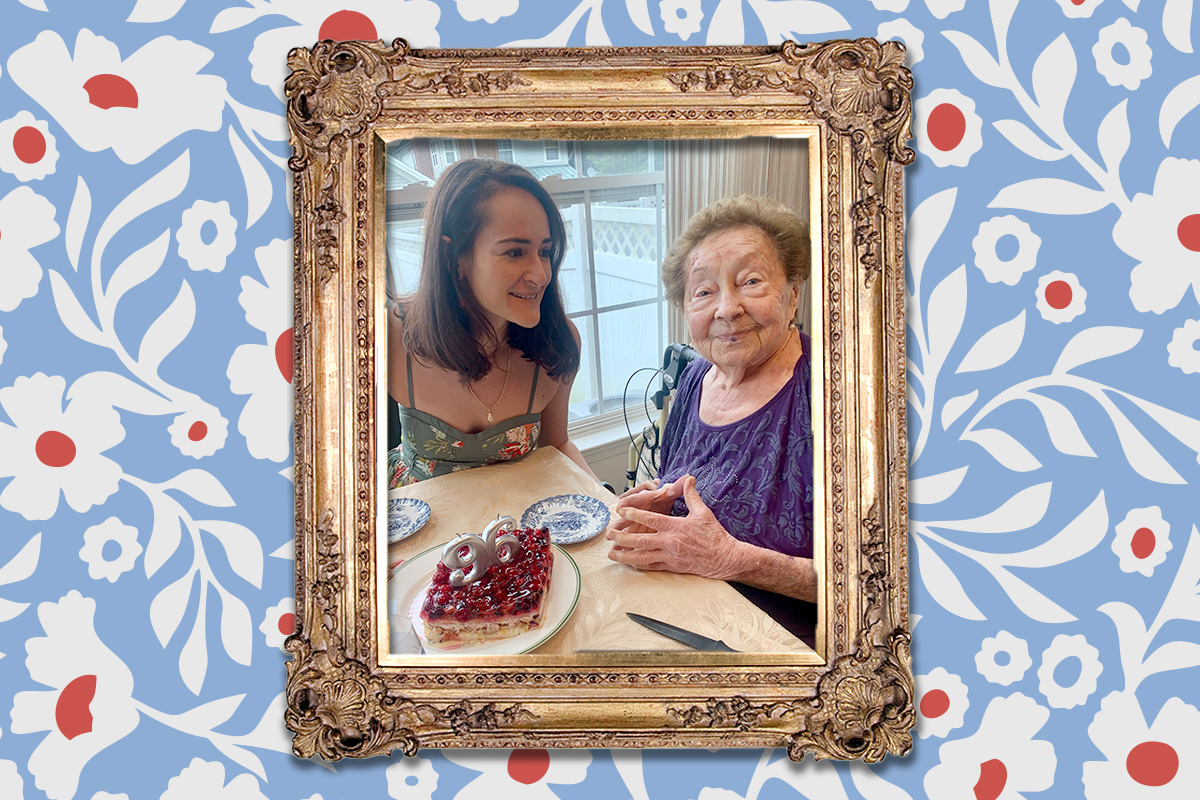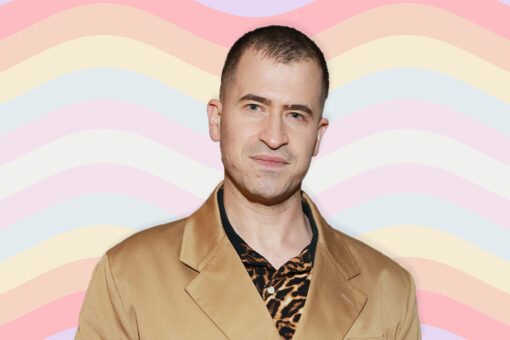The 1938 film “The Great Waltz” is the greatest movie of all time. That wasn’t an opinion, that was a fact, according to my very opinionated and loving grandmother — or as I call her, Babushka, in Russian. “The Great Waltz” is inspired by the real-life story of Composer Johann Strauss II; it’s a film about love, loss and love again.
Babushka told me when she first saw the movie — the glamorous women, the charming men, the choreographed dancing, the uplifting music — she cried.
Not because of the plot line, but because she desperately wanted to be there with the lead characters, dancing, marching for revolution and falling in love.
She yearned to live in their reality in order to escape her own: a reality that included being orphaned as a child, surviving the Holocaust, and then in her 60s, fleeing Russia to start a new life in America to help raise me, her granddaughter.
Last December, as her hospice nurse threw away her morphine, crushed her pain pills, and struggled to spell out all 13 letters of my grandmother’s last name to the morgue, it was I who wanted to escape reality — the one in which Babushka was no longer alive.
Babushka was, for lack of a better “Grey’s Anatomy” quote, my person.
By most standards, our relationship was unusual. We spoke on the phone every day, and I’d see her several times a week — and every single day towards the end. I savored the moments, took videos and pictures, and made sure to write down all her one-liners (“I couldn’t stand your grandfather when he was drunk. And he was always drunk”).
She witnessed the worst of humanity, but never lost her zeal to live. When World War II began, Babushka was forced to evacuate: from Kirvograd, Ukraine, where she was born, to Kyrgyzstan. She described being put onto the same railway carriage they used to transport cattle. Evacuees like her traveled for 42 days, with nine people sleeping on a wooden board at the same time. If they wanted to re-position or turn their bodies, they had to do it on command, five people at a time.
When she reached her temporary destination, Babushka went an entire week without food. She picked fruit off of trees to eat, not knowing whether the berries were poisonous, but feeling like the alternative could be worse. She even remembered how many grams of bread she got when she finally received her bread card (500).
One of the last videos I took of my grandmother was of her recalling life during the war; they were difficult, hungry times, she said. But she was grateful to have had a job at the telegraph during that time, which she loved. “We knew we were fighting on the right side, and because of that, everything would be OK,” Babushka told me.
She remained curious and quick-witted until the end. Once, after a routine visit, Babushka’s nurse asked her if she had any questions. “Yes!” she exclaimed. “Why the hell did Nancy Pelosi go to Taiwan?” And, “When is Putin going to drop dead already?
Babushka immersed herself in politics, pop culture and art, perhaps as a reminder that our journey on this earth also offers plenty of beauty and happiness, depending on which angle we choose to look at life through.
But then there we were, the end. They say “when you love hard, you lose hard,” and if there were a proverbial rock bottom, it felt like I had been falling over and over again over the last six years. First, when she was diagnosed with ovarian cancer in 2016, when it came back again several years later, and then when she succumbed to the disease last December.
As for how I coped? It wasn’t pretty. In fact, it was The Winter I Turned Ugly.
In the throes of deep grief, you find yourself ugly crying (the kind where your face is bright red, covered in snot and drool, and you gasp for air between sobs). You say ugly things, sometimes to the people you care most about. You think ugly thoughts and you learn to live in an ugly world, void of the person you were hoping you’d have for just a little longer.
People told me I should consider myself lucky that we got to spend so much time together, and they were probably right, but I felt anything but.
Instead, all I could think about was: How do people do this? How do we go on knowing that one day, sooner than later, the people we love the most won’t be here anymore to love us back?
I don’t purport to be an expert on grief, and I certainly don’t have a degree in psychology (although working with comedy writers for the last six years has probably brought me a bit closer to that). But instead of avoiding my feelings, I decided to (and I think this is the scientific term for it) sit in my shit. Like really, sit in it. And, again, it was — ugly.
But as ugly as it was, it also felt necessary. Embracing grief can feel emboldening, a reminder that we are so much stronger than we think. It can be humbling, a reminder that love comes at a price. And it can also be beautiful. In Judaism, there is a belief that those we love never really leave us because they live through us. And though her physical body is gone, Babushka’s spirit lives on in those who bear her memory.
After the rabbi who led her funeral service spoke about Babushka’s life, he ended with, “Her story should be a movie.”
Last year, Babushka and I finally watched “The Great Waltz” together on her 96th birthday. She had the same reaction I’d imagine she had as a young woman, when she first laid eyes on the men and women who defined the glamour of that era. For those brief moments, she and I both lived in a fantasy. And because of her, I knew I was strong enough to confront a reality where she’d no longer be with me in physical form.
Because I had felt her love, and her loss, and her love again.



